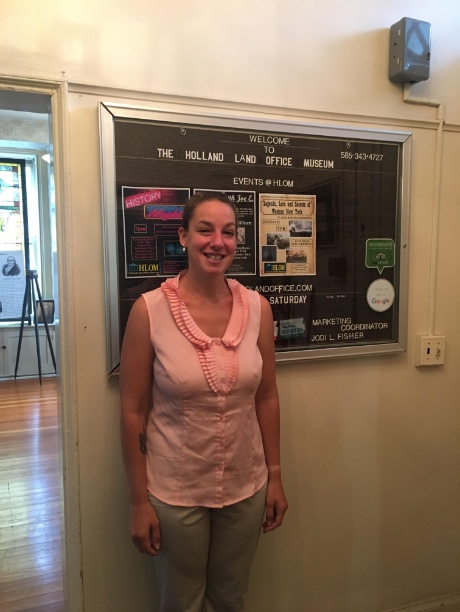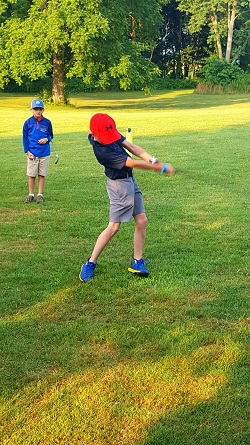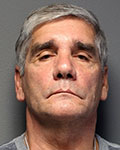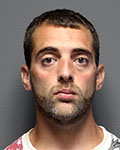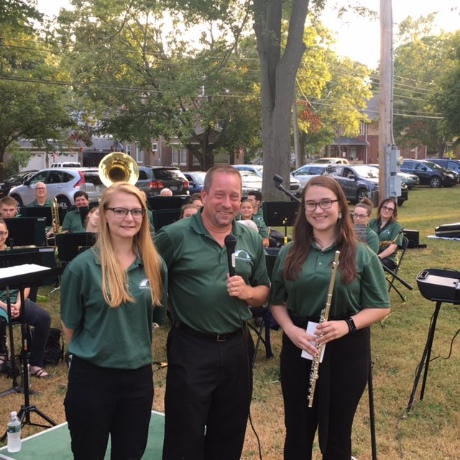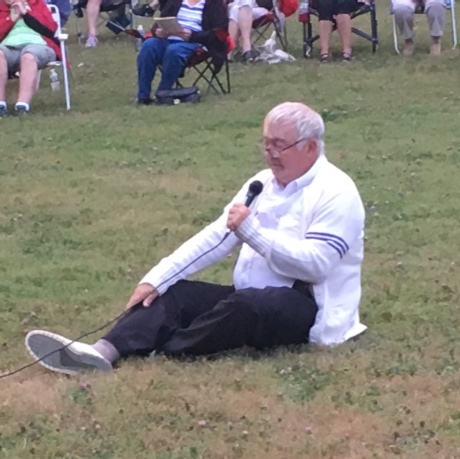Donald Frisby
(inset photo left), 64, was arrested by the Le Roy Police Department on July 16 and charged with one count of first-degree sexual abuse, a Class D felony.
It is alleged that in the month of July, while in the Village of Le Roy, that Frisby subjected a female to sexual contact by forcible compulsion. Frisby was arraigned before the court and released under supervision of Genesee Justice.
Jeremy D. Lyons (inset photo, below right), 34, of Perry Road, Le Roy, is charged with one count each of the misdemeanors of third-degree assault and criminal obstruction of breathing or blood circulation. A violent domestic/assault led to the arrest of Lyons, a parolee, in the Village of Le Roy on Aug. 6.
The domestic incident was reported in the early morning hours on Church Street in which the victim reported that Lyons was staying with the female on Church Street, allegedly in violation of his parole conditions. It is alleged that Lyons tackled the female to the ground then punched her multiple times in the face and choked her.
Afterward, Lyons ran off. Lyons was located later that day by police after a small search, in which Lyons was discovered hiding in the weeds in the area of the Little League Field between East Main Street and St. Marks Street. Following his arrest, Lyons was arraigned and put in Genesee County Jail in lieu of $750 bail. A parole violation warrant was also issued due to this incident.
Darrell D. Smith, 52, of Highland Parkway, Batavia, is charged with criminal mischief. He was arrested after a domestic incident at midnight on Aug. 8 on Prune Street, Batavia. He was arraigned in Batavia City Court and released on his own recognizance. He is due in city court at a later date. The case was handled by Batavia Police Officer Stephen Quider, assisted by Officer Christopher Lindsay.
Carlos E. Flores, 27, of Rand Street, Rochester, is charged with second-degree harassment. Flores was arrested after an incident at 8:35 p.m. Aug. 11 on Bank Street in Batavia. He allegedly threatened a person using gestures with his hands during a verbal dispute that caused the victim to be in fear. He was issued an appearance ticket and released and is due in Batavia City Court on Aug. 20. The case was handled by Batavia Police Officer Stephen Quider, assisted by Sgt. Dan Coffey.
Darius Lamar Jones, 27, of Exchange Street, Attica, is charged with: criminal possession of a controlled substance; unlawful possession of marijuana; speed violation -- exceeding 55 mph; and unlicensed operation of a motor vehicle. At 9:02 p.m. on Aug. 7 on Route 33 in Byron, Jones was arrested after a traffic stop. It is alleged that "criminal indicators were observed," leading to a search of Jones and his vehicle. The search allegedly yielded marijuana, controlled substances and drug paraphernalia. He was issued appearance tickets for Sept. 9 in Byron Town Court. The case was handled by Genesee County Sheriff's Deputy Andrew Mullen, assisted by Deputy James Stack.
Linda Marie Clemens, 58, of South Main Street, Batavia, is charged with aggravated driving while intoxicated and DWI. At 11:23 p.m. on Aug. 7, deputies responded to the parking lot of Batavia Downs on Park Road for a reported motor-vehicle accident. When they arrived they located Clemens in her vehicle. It is alleged that Clemens struck a parked vehicle in the parking lot. She was released on appearance tickets for Aug. 26 in Batavia Town Court. The case was handled by Genesee County Sheriff's Deputy Brock Cummins, assisted by Deputy Ryan Young.
(name redacted upon request), of Farwell Drive, Batavia, is charged with unreasonable noise. He was arrested following a loud music complaint at 11 a.m. on Aug. 9 on Farwell Drive. He was released on an appearance ticket for Aug. 20 in Batavia City Court. The case was handled by Batavia Police Officer Adam Tucker, assisted by Officer Jason Ivison.
Carrie A. Stewart, 39, of Church Road, Darien, is charged with petit larceny. She was arrested after an investigation of a larceny that occurred at 11:47 a.m. on Aug. 10 on East Main Street in Batavia. She was issued an appearance ticket and is due in Batavia City Court on Aug. 20.
Christine Wark, 34, of School Street, Le Roy was arrested by the Le Roy Police Department on July 22 and charged with one count of petit larceny after a complaint from a local business that Wark was allegedly seen shoplifting inside the store. Upon arrival of the Le Roy Police, Wark was arrested and released on an appearance ticket to appear in the Le Roy Court at a later date.
Cody N. Proefrock, 26, of Liberty Street, Batavia, is charged with petit larceny. He was arrested after allegedly shoplifting from a local store at 5:20 p.m. on Aug. 6. He turned himself in. He was issued appearance tickets and released and is due in Batavia City Court on Aug. 20. The case handled by Batavia Police Officer Marc Lawrence.
Tony J. Aguglia, 39, of Main Street, Clarence, is charged with failure to appear. He responded to Batavia Police station at 1 p.m. on Aug. 6 and turned himself in on an arrest warrant. He is due in Batavia City Court on Aug. 13. The case was handled by Batavia Police Officer Felicia DeGroot.
